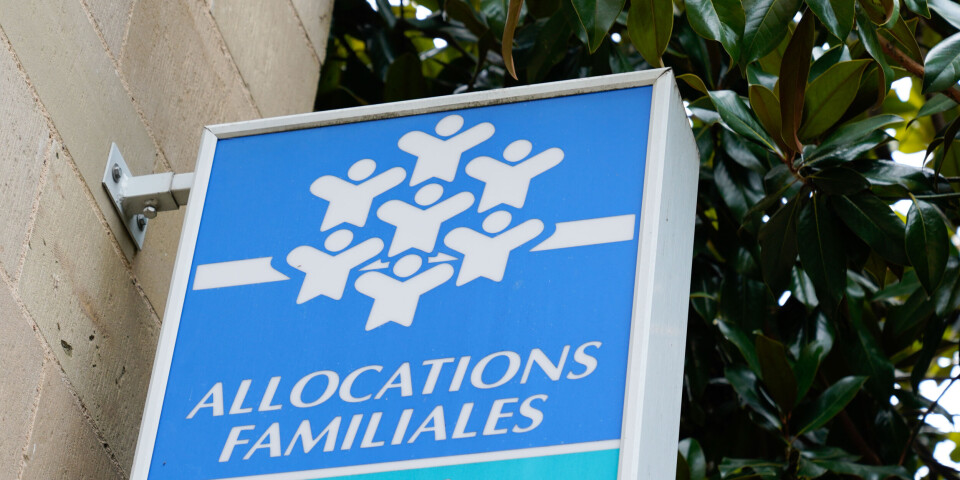France puts forward 18 plans to simplify life for disabled people
The measures aim to streamline administrative procedures and reduce delays
The new measures will help to simplify access to support for disabled people in France, with specific clauses for children and over 60s
SeventyFour/Shutterstock
A series of 18 measures will be adopted in France to simplify the lives of disabled people and facilitate their access to support and financial aid.
The announcement, made on July 9, highlights the intention to streamline procedures and reduce application delays.
‚ÄúThese are sensible, effective and humane measures. But above all, this is an in-depth reform, with a clear timetable, increased resources and shared governance,‚ÄĚ said the Minister for Autonomy and Disability, Charlotte Parmentier-Lecocq, in a Facebook post.
The measures will also provide better support for departmental disability centres (MDPH).
These centres are responsible for assessing some 5 million aid applications per year with ‚Äúa person, a family and an urgent need‚ÄĚ behind each file, reports the dedicated government press release.
In the second half of 2024, it took an average of five months to process applications for the disabled adult allowance (AAH), according to the published by the Caisse nationale de solidarité pour l'autonomie.
Processing times of up to ten months were recorded in Seine-Maritime, with assessments taking over a year in the overseas territory of Mayotte.
Read also: MS sufferer turns to Tik Tok to fill void in French support
A solutions-driven ‚Äėtour de France‚Äô
Ms Parmentier-Lecocq visited 12 French departments (including two overseas territories) to exchange with disabled people, carers, and MDPH staff.
The visits, known as the Tour de France des solutions resulted in the creation of 18 measures aiming to improve existing systems and develop new measures, ‚Äúto harmonise practices across the country.‚ÄĚ
These plans were grouped into four key priorities.
1. Simplify procedures
Aids and entitlements must be implemented indefinitely when a person‚Äôs disability is ‚Äúunlikely to evolve favourably.‚ÄĚ An official reminder will be issued to MDPHs that continue to demand ‚Äúpointless‚ÄĚ annual analysis of individual situations, by 1 September, 2025.
A series of measures also apply specifically to children and young people:
From April 1, 2026, entitlement to the education allowance for disabled children (AEEH) will be extended to all children whose disability is ‚Äúunlikely to evolve favourably‚ÄĚ
Aid for disabled pupils will be granted ‚Äúfor an entire school period‚ÄĚ (nursery, primary, secondary school), with no need to renew the application via MDPHs
From July 1, 2026, support will also be provided to disabled people transitioning into retirement - a period that is ‚Äústill all too often synonymous with the loss of rights, complex procedures or the interruption of benefits,‚ÄĚ states the report. This concerns the allowance for disabled adults (AAH).
Read also: What support is available for people with Alzheimer's in France?
2. Listen, guide and support
All first-time applicants will be offered face-to-face appointments in MDPHs to explain their rights and make it easier to complete applications. This measure will be rolled out across the country during 2026.
A series of guides and video tutorials will also be made available from November 1, 2025.
‚ÄúThe aim is to ensure that no-one feels alone when dealing with an application,‚ÄĚ states the report.
Read also: What aid or help groups exist in France to cope with a new disability?
3. Simplify and reduce delays
The majority of the 18 measures fall into this section.
Plans to reduce waiting times and simplify processes include:
A shorter, clearer MDPH form with three formats that can be selected depending on a person's particular situation (from Autumn 2025)
A more simple and accessible entitlement notification, explicitly detailing aids that have been approved or denied, and clearly listing the next steps in the process (from the end of the first semester of 2026)
The automation of procedures such as issuing disability cards or parking badges for over 60s (June 1, 2026), which today represents nearly a quarter of all MDPH applications
Support materials and educational aid for children can be directly allocated via "educational teams", without making an MDPH application (currently being rolled out)
4. Support MDPH staff and modernise their tools
The final section of the report highlights the intention to offer training to MDPH staff so they can develop better knowledge of invisible disabilities, their manifestations and their impact on daily life. This will come into place by mid 2026.
The report also outlines plans to experiment with artificial intelligence by developing a chatbot to aid MDPH staff and accelerate the processing of applications.
Furthermore, a ‚Äúnational information system‚ÄĚ will be put into place during the second half of 2026 to support the ‚Äúcontinuity‚ÄĚ of practices across France and facilitate communication between MDPHs.
‚ÄúToday, when a person moves from one department to another, their MDPH file does not automatically follow them,‚ÄĚ states the report. This can lead to the cancellation or interruption of entitlements and forces people to restart the application process.
See the report for full details.



























